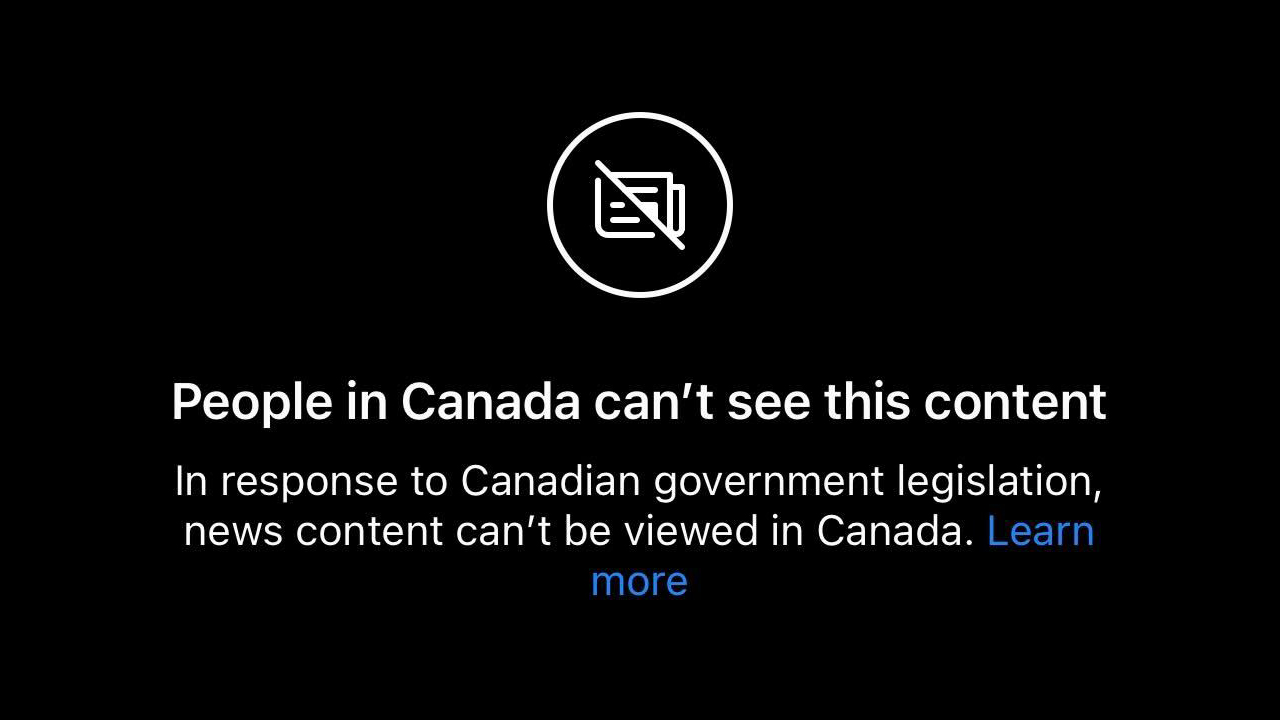How the Meta news block is impacting Interrobang
 CREDIT: HANNAH THEODORE
CREDIT: HANNAH THEODORECanadians are not currently able to view Interrobang's content on Instagram.
In June of this year, the Canadian government passed Bill C-18, otherwise known as the Online News Act. The act requires digital companies pay news organizations when someone gets to a web story through a link on one of their websites. According to the government, this sort of revenue sharing is necessary to ensure the future of Canadian journalism, after most advertising moved to these online platforms and wiped out a major revenue stream for journalism. Tech giants Google and Meta, however, have been against the bill from the start, viewing the law as a tax on links.
That’s why, in response to the passing of the Online News Act, Meta began blocking all news on its platforms as of August, meaning Canadians are now unable to view news on websites like Facebook and Instagram. Under Meta’s block, Canadians are also unable to view news content form international publishers like the BBC or the New York Times.
“We have been transparent and have made it clear to the Canadian government that the legislation misrepresents the value news outlets receive when choosing to use our platforms,” Meta said in a statement. “The legislation is based on the incorrect premise that Meta benefits unfairly from news content shared on our platforms, when the reverse is true. News outlets voluntarily share content on Facebook and Instagram to expand their audiences and help their bottom line. In contrast, we know the people using our platforms don’t come to us for news.”
Unlike Meta, Google has had talks with the government in hopes of finding a solution. Barring a deal, however, when the law goes into effect at the end of the year, Google said it will be removing links to Canadian news from search, news pages and its curated content feed.
According to Meta, the news published it is choosing to block are based on “legislative definitions and guidance from the Online News Act.”
The act lists several possible criteria, including:
- Producing news content of “public interest.”
- Regularly employing two or more journalists in Canada.
- Operating in Canada, including having content edited and designed in Canada.
- Belonging to a recognized journalistic association.
So what does that mean for our audience?
You can still access Interrobang’s website (theinterrobang.ca), and view all the latest stories directly from our homepage. You can also still track our social media on X (formerly Twitter), and watch our video content on our YouTube channel. Our podcast, which updates weekly, can still be accessed on Spotify, Google Podcasts and Apple Podcasts, or through our website. You can subscribe to our newsletter to get your Fanshawe news delivered right to your email on a weekly basis.
And lastly, you can pick up your physical copy of Interrobang on newsstands throughout the college every other week.
We will continue to follow this story as it develops and provide updates to students accordingly.

















